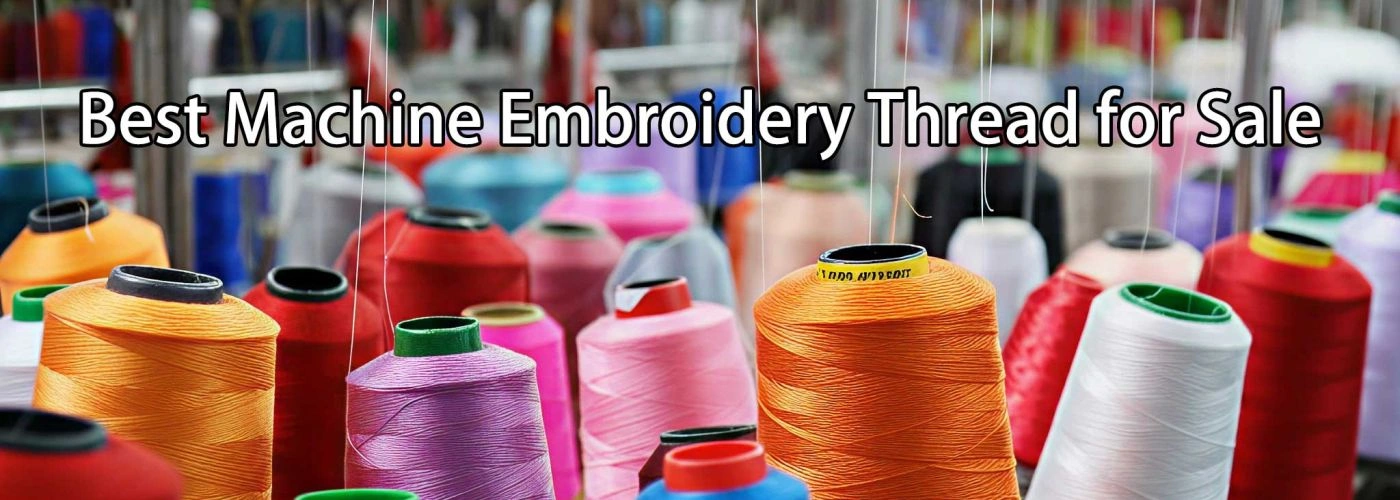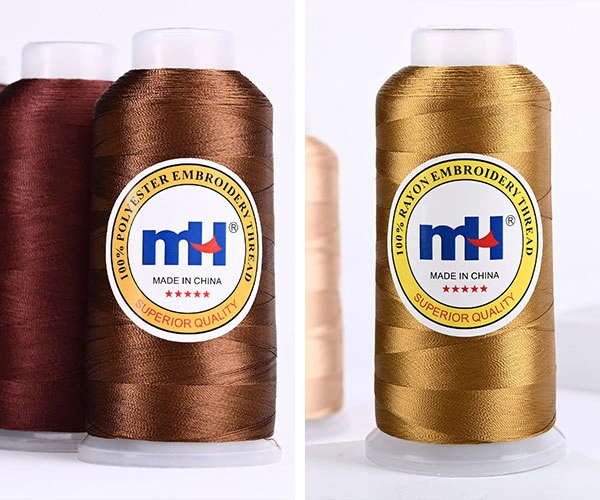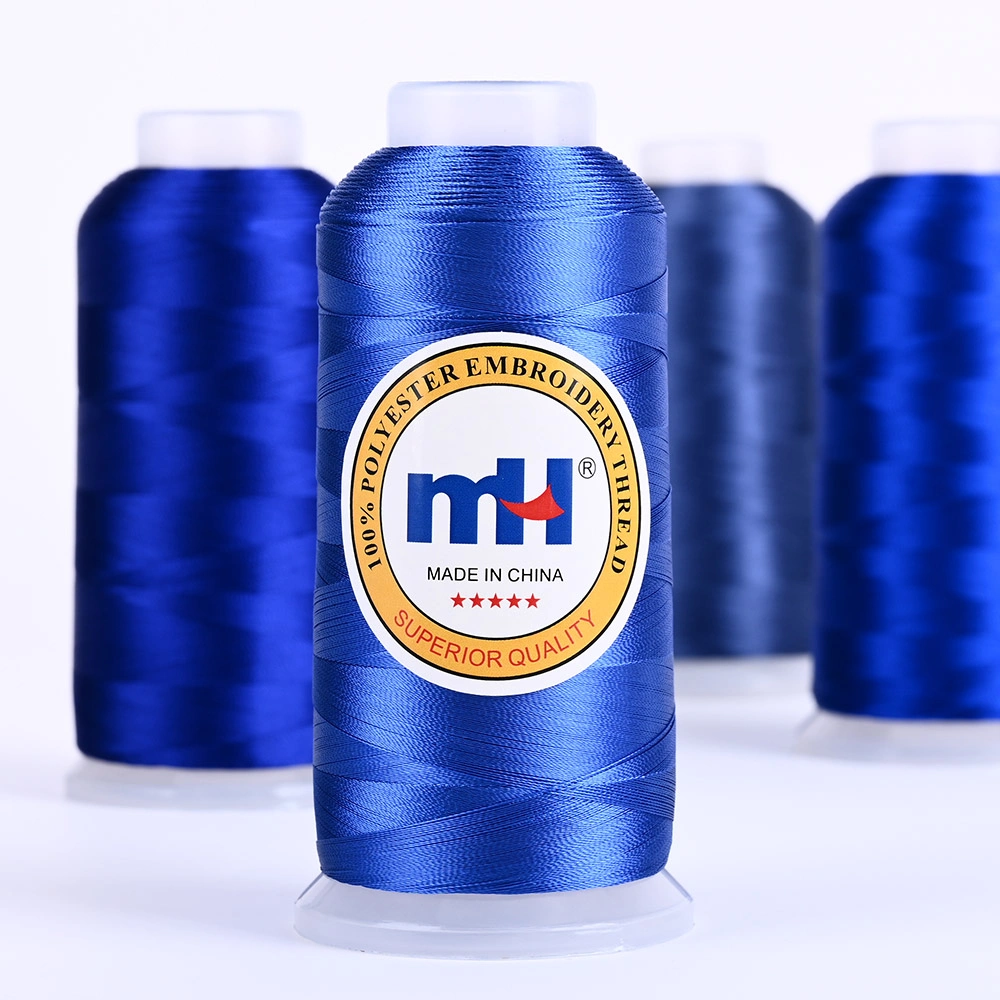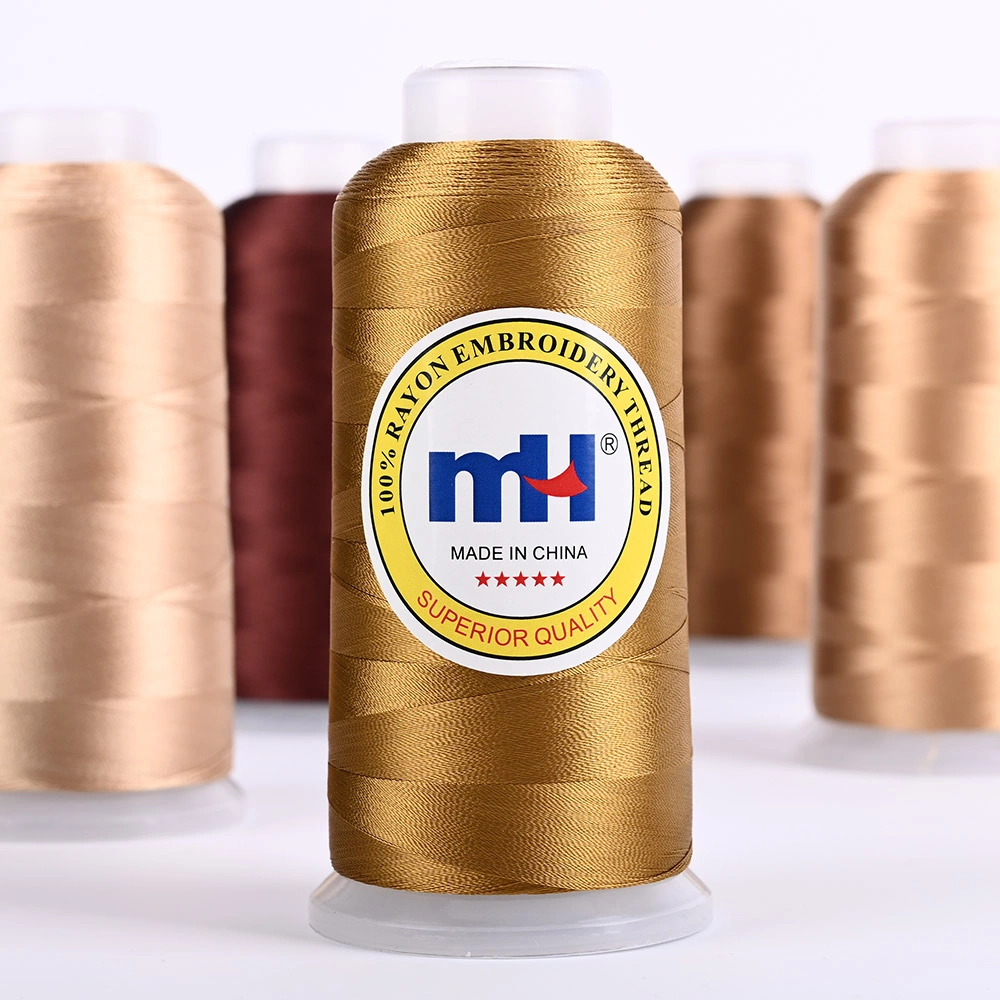
Best Machine Embroidery Thread for Sale: Quality You Can Trust
Machine embroidery has evolved into an essential part of modern garment production and textile design. The right choice of machine embroidery thread directly influences stitch consistency, beautiful colors, and durability. These threads are great for various embroidery projects, enhancing both the aesthetic appeal and the quality of your work. Whether you’re sourcing from a factory, importing for wholesale, or focused on maximizing production value, understanding the characteristics of embroidery threads is essential for ensuring premium results and operational efficiency.
This post explains the key thread types, the factors you should consider when making a purchase, and why machine embroidery thread quality impacts your workflow and finished products. It also highlights how sourcing from reputable made-in-China suppliers can add value to your supply chain.
Understanding Machine Embroidery Thread
Machine embroidery thread is a specialized fiber engineered to withstand the high-speed demands of embroidery machines. Unlike standard sewing thread, embroidery thread is available in various types, including cotton, rayon, and polyester, and is designed for bright color fastness, minimal fraying, and optimal sheen on finished products. Using the right thread enhances the quality and appearance of embroidery designs, making them crisp and vibrant, and minimizing rework and thread waste.
What Makes Embroidery Thread Unique?
-
Enhanced Tensile Strength: Designed to handle high-speed stitching with minimal fraying or breaks, making it perfect for both machine and hand embroidery.
-
Superior Color Fastness: Maintains brilliance even after repeated washing or exposure to light.
-
Consistent Dyeing: Factory-controlled processes ensure reliable, uniform color in every batch, critical for wholesale import and large-scale production.
-
Smooth Finish: Reduced lint and a glossy appearance enhance stitch definition for high-end products. High-quality threads bring embroidery designs to life, making them visually appealing and vibrant.
Types of Machine Embroidery Thread: Polyester vs Rayon

The two most popular threads in machine embroidery are polyester and rayon (including viscose). When assessed for wholesale, import, and mass production, each type offers distinct performance characteristics. Understanding their strengths allows for more targeted procurement and better end-product results.
Polyester Machine Embroidery Thread

Features
-
Exceptional Strength: Polyester thread withstands the rigors of industrial embroidery machines. It resists fraying and snapping, reducing machine downtime and waste. It is compatible with various high-end sewing machines, including Bernina, ensuring seamless operation for both hobbyists and professionals.
-
Compatibility: The thread also works seamlessly with Husqvarna machines, enhancing the user experience in various embroidery projects.
-
Color Fastness: Polyester threads are renowned for resistance to fading from sunlight, washing, and bleaching. This makes them ideal for uniforms, sportswear, kids’ garments, and items requiring frequent laundering.
-
Availability and Range: Most factories, especially those specializing in made-in-China textiles, offer a vast color palette and a wide array of thicknesses for polyester machine embroidery thread.
-
Cost-Effective: Due to efficient manufacturing (notably in leading Chinese production hubs like Zhejiang and Guangdong), polyester thread is often available at competitive wholesale prices.
Applications
-
Garments subjected to heavy washing or sunlight
-
Home textiles, sportswear, and outdoor gear
-
Large-scale runs demanding uniformity and color fidelity
Rayon (Viscose) Machine Embroidery Thread

Features
-
High Luster: Rayon and viscose thread offer a softer, silk-like sheen preferred for luxury garments, decorative stitching, and high-end branding.
-
Smoothness: Minimizes friction with delicate fabrics while delivering excellent stitch detail.
-
Moderate Strength: While strong, rayon/viscose is more susceptible to fraying under extreme machine speeds or aggressive detergents compared to polyester.
Considerations
-
Rayon threads excel in aesthetic applications but require careful handling and may not match polyester for color fastness or ruggedness.
-
When buying for wholesale import, ensure batch testing for fraying resistance.
Applications
-
Fashion apparel and accessories
-
Decorative embroidery for branding or logos
-
Design elements requiring high sheen and detail
Factors to Consider When Choosing Threads
Choosing machine embroidery thread extends beyond visual appeal. Customers are happy with the thread quality, often praising its vibrant colors and durability. They love how these threads enhance their craft projects and overall satisfaction with their purchases. For manufacturers, wholesalers, and importers, focusing on technical specifications ensures both operational efficiency and high product quality.
1. Color Fastness
Bulk buyers should verify that the factory’s dyeing process guarantees long-lasting, fade-resistant colors, ensuring they are purchasing the perfect thread for their needs. Reputable made-in-China suppliers offer ISO-certified threads, minimizing returns due to color inconsistency.
2. Resistance to Fraying
Operational efficiency depends on minimizing thread breaks, especially in major embroidery projects. Polyester generally excels, but leading manufacturers have also developed anti-fray treatments for rayon and viscose products. Always request samples and conduct speed tests before committing to wholesale import.
3. Thread Weight and Consistency
Item consistency in thread diameter (weight) ensures even stitching across large production runs. Excessive variation can lead to skipped stitches or uneven embroidery. Factories using advanced spinning and QC technology are better positioned to supply reliable, uniform thread for mass-market projects.
4. Factory Standards and Certifications
Opt for suppliers that adhere to rigorous quality standards (Oeko-Tex, ISO 9001, etc.) and offer transparency about the original price of their products. Made-in-China factories with robust R&D, production traceability, and responsive support streamline procurement and minimize compliance risks.
5. Application Requirements
Consider the end-use of your product. When you shop for embroidery threads, it's important to consider application requirements. For outdoor or children’s wear, color fastness and abrasion resistance are critical. For branding or artistic elements, lustrous rayon (or viscose) can deliver added value.
6. Import Logistics and Wholesale Support
A strong supplier relationship ensures rapid order fulfillment, compatibility with a variety of sewing machines, after-sales technical support, and access to the latest thread innovations. Leading Chinese factories often provide dedicated sampling, bulk color matching, and custom packaging for wholesale buyers.
Why Source Your Machine Embroidery Thread from China?
China remains the global leader in textile manufacturing, with a comprehensive supply chain spanning thread spinning to finished packaging. When partnering with a reputable factory, buyers access:
-
Competitive Pricing: Lower overhead and streamlined logistics lead to reduced per-unit costs for wholesale buyers.
-
Scalability: Advanced automation and expansive production lines support quick scaling for peak demand periods.
-
Innovation: Factories invest heavily in R&D, offering eco-friendly dye processes, enhanced fraying resistance, and improved color fastness.
-
Custom Solutions: Whether you need a unique color, specialty finish, or private-label packaging, Chinese suppliers provide tailored support for your embroidery supplies.
Ensuring your order is from a factory with robust quality controls, traceability, and transparency can maximize your return on investment and uphold your brand’s reputation.
Maximizing Quality and Efficiency in Embroidery Production
Sourcing the right machine embroidery thread set is more than a purchasing decision. It is a strategic investment in the reliability and visual appeal of your finished products. Global buyers seeking threads for large-scale embroidery projects benefit from evaluating technical performance as well as cost structure.
-
Test before you invest: Always sample thread for your specific machine configurations and production speeds. Standard performance markers include resistance to fraying, color fastness, and stitch consistency.
-
Establish supplier partnerships: Ongoing relationships with trusted factories enhance consistency and enable rapid response to changing production needs.
-
Leverage technical support: Many leading suppliers, especially those specializing in made-in-China textiles, now offer remote or on-site technical expertise as part of their wholesale package.
-
Stay informed on innovations: The market for machine embroidery thread is continually advancing; look for threads with enhanced eco credentials, superior sheen, or performance coatings to meet emerging end-user preferences.
Take Your Embroidery Production to the Next Level
A thread may seem like a small component, but its impact on cost, efficiency, and product quality is substantial. By organizing a well-stocked sewing room and understanding the differences between polyester and rayon (viscose) machine embroidery threads, buyers can secure quality products that consistently deliver.
Working directly with established made-in-China factories enables buyers to access factory pricing, superior customization, and after-sales support. Prioritize verified quality standards and performance testing to optimize every stitch.
For more detailed technical information or to request a sample pack for testing, contact our wholesale support team today or explore our latest range of machine embroidery threads engineered to outperform at scale.
 Whatsapp:
Whatsapp: